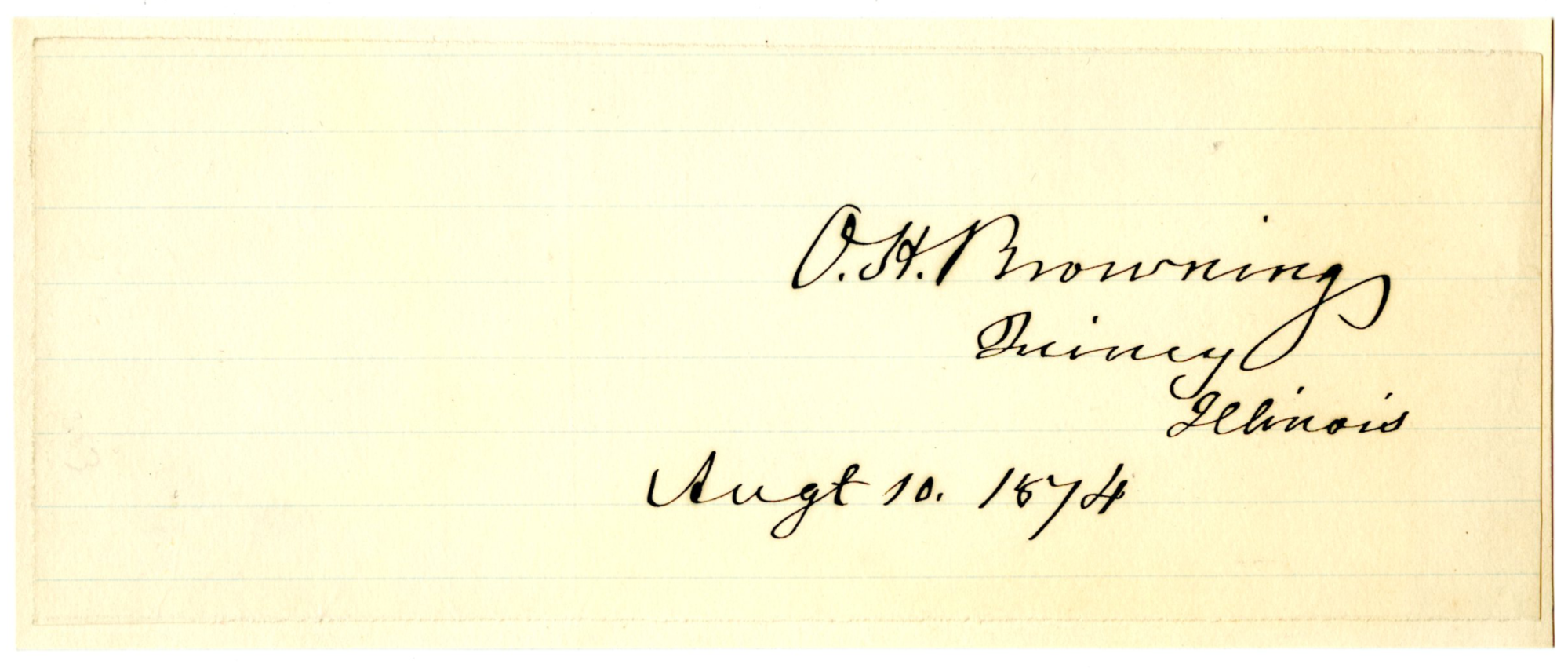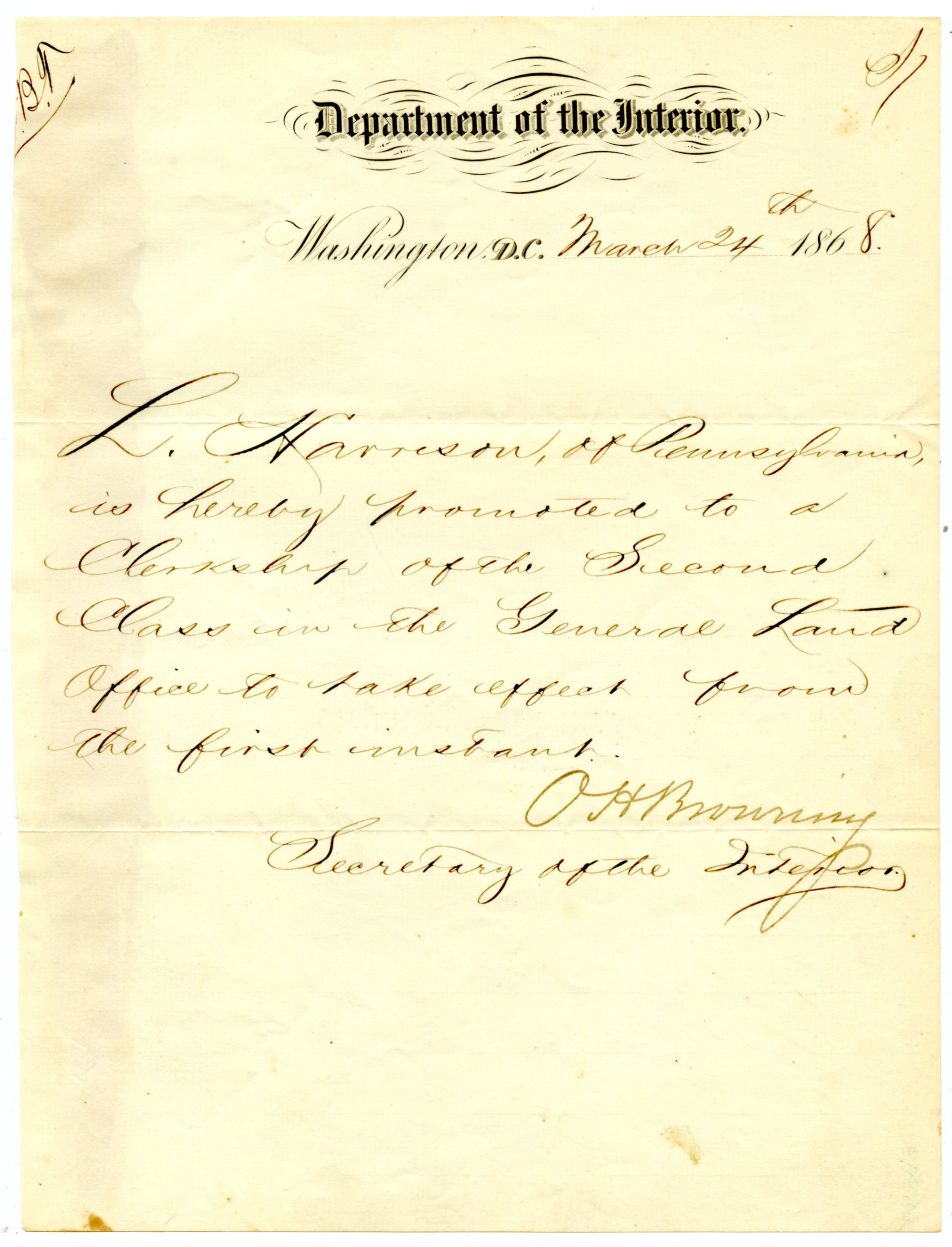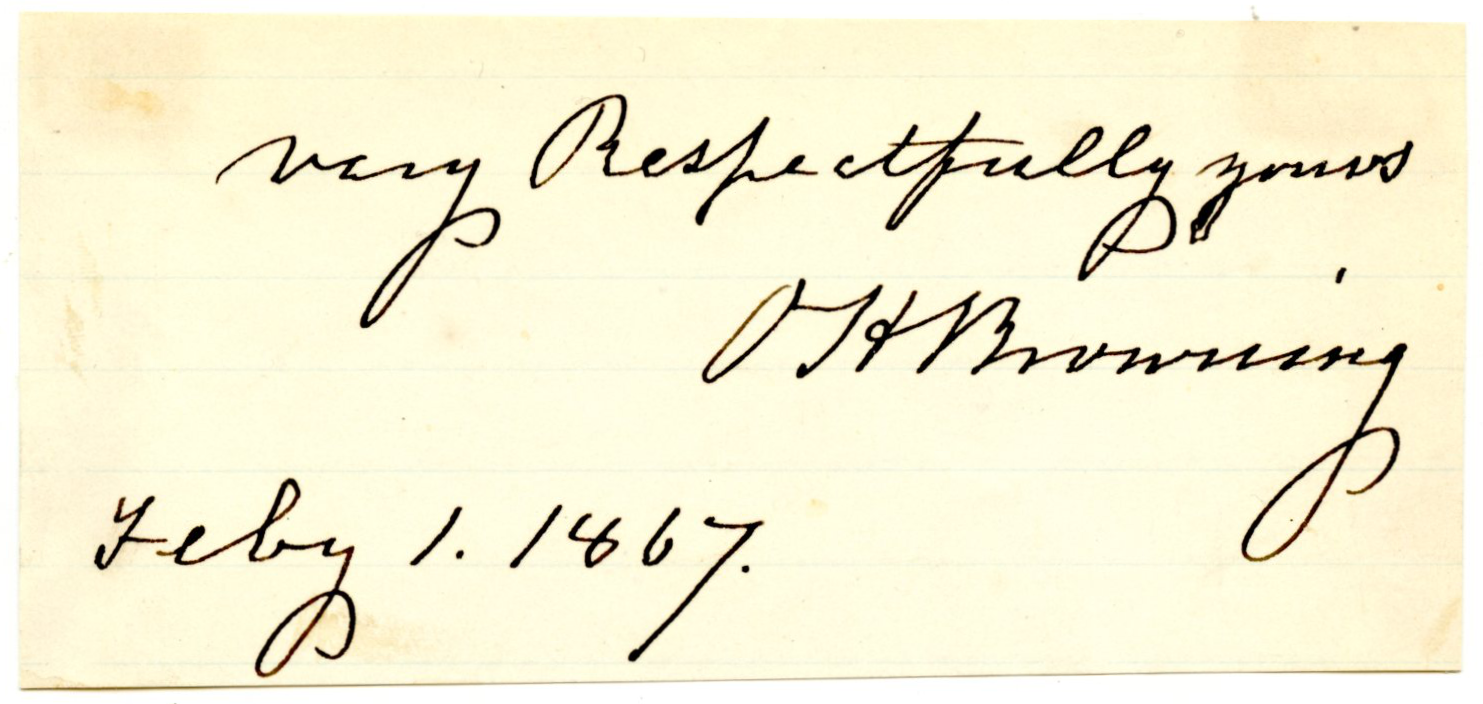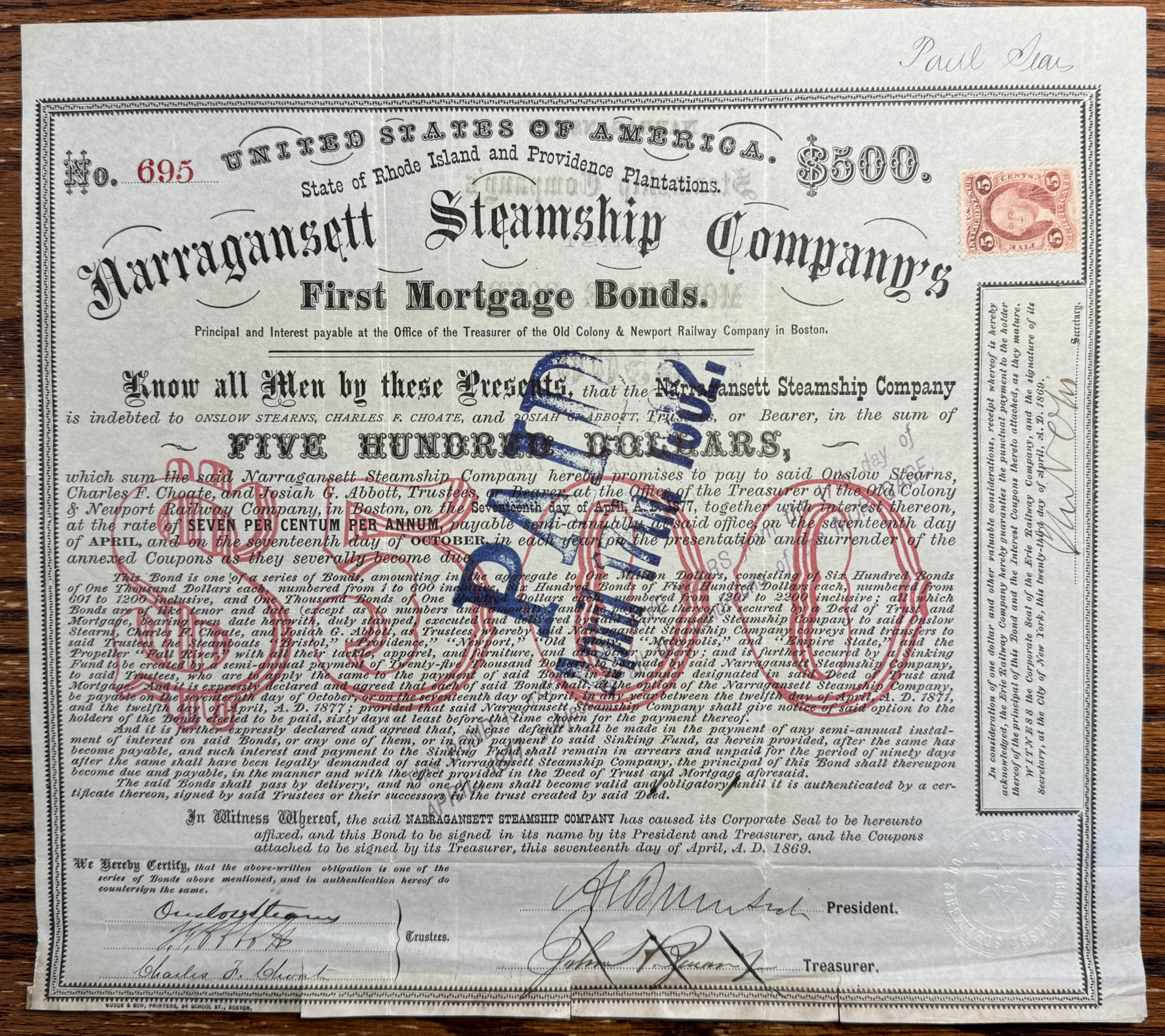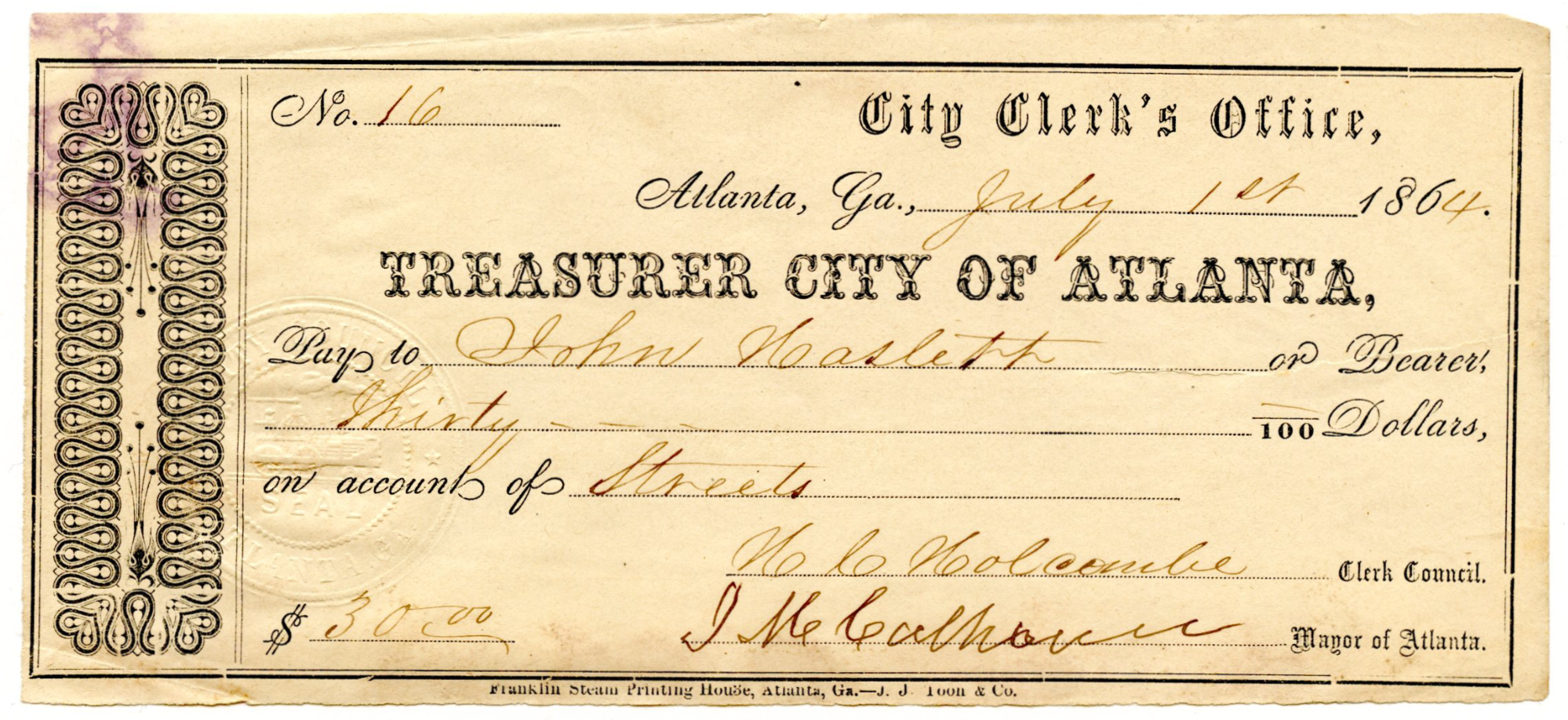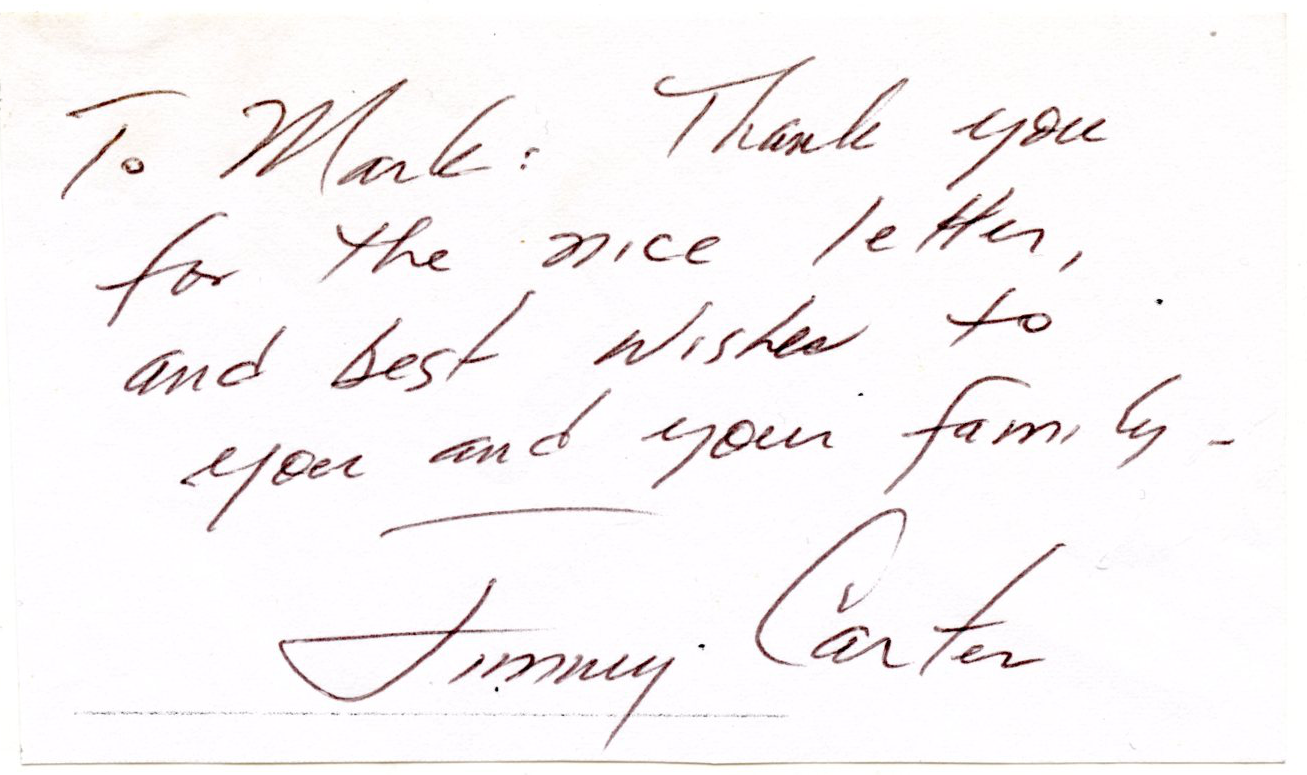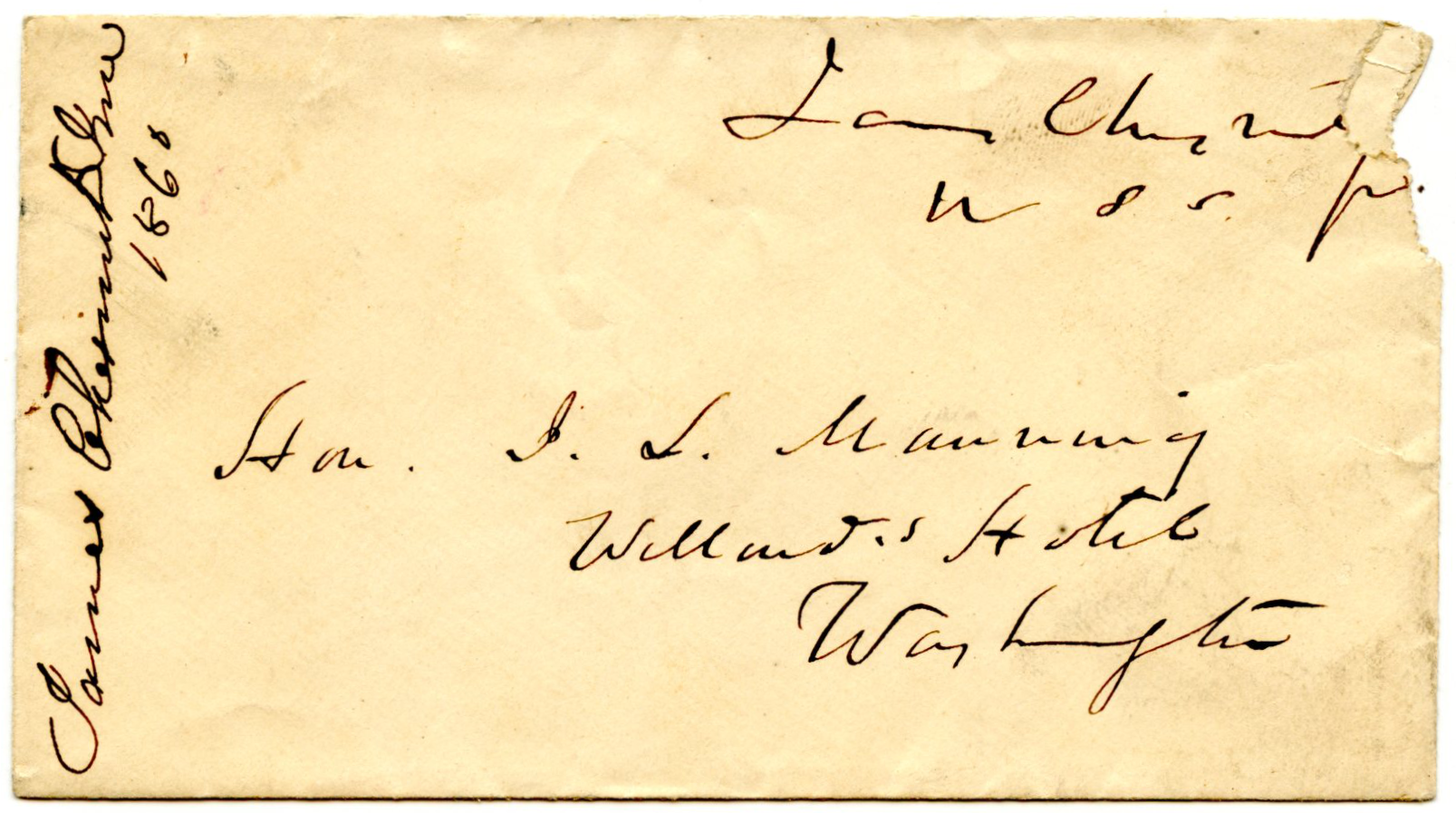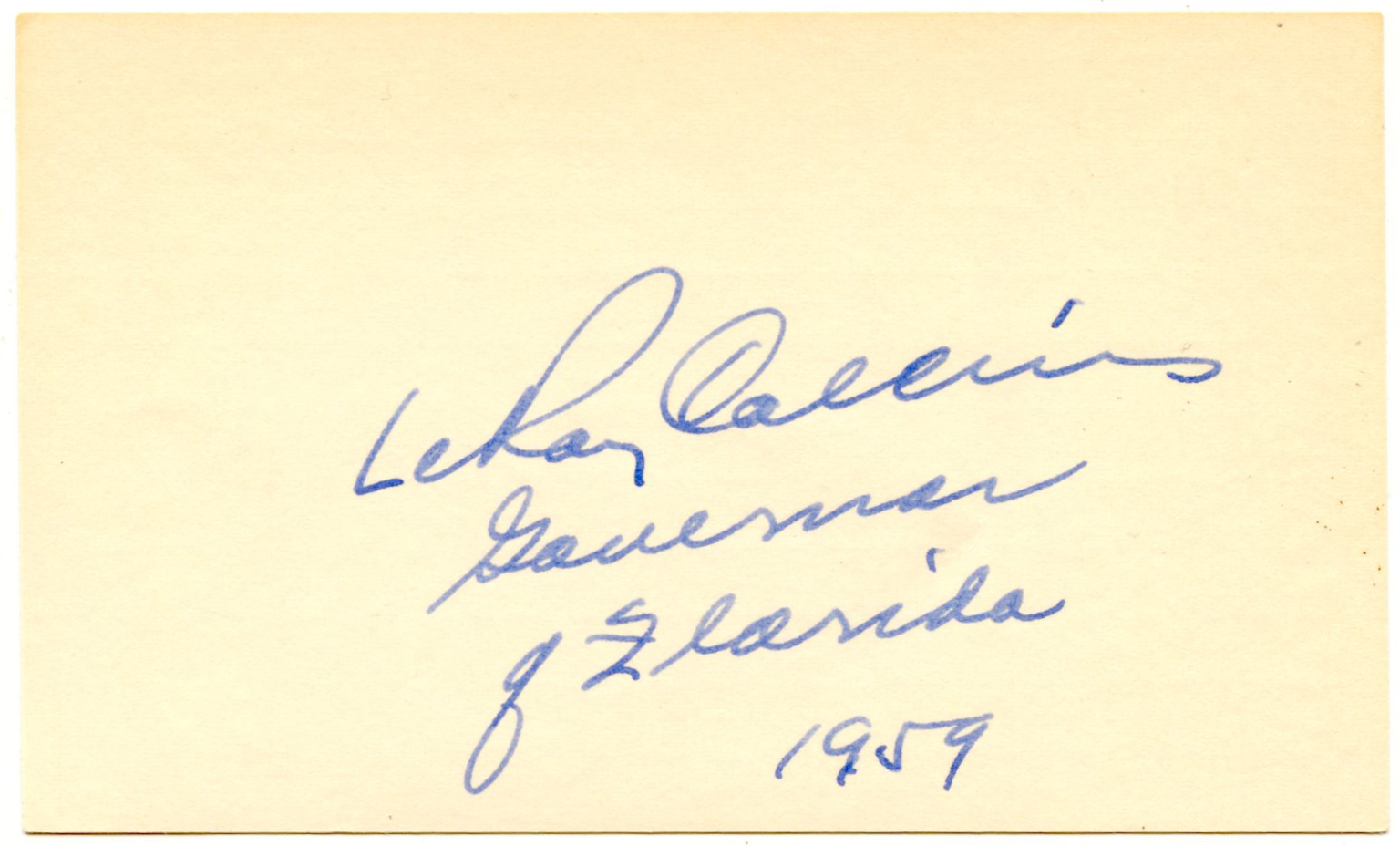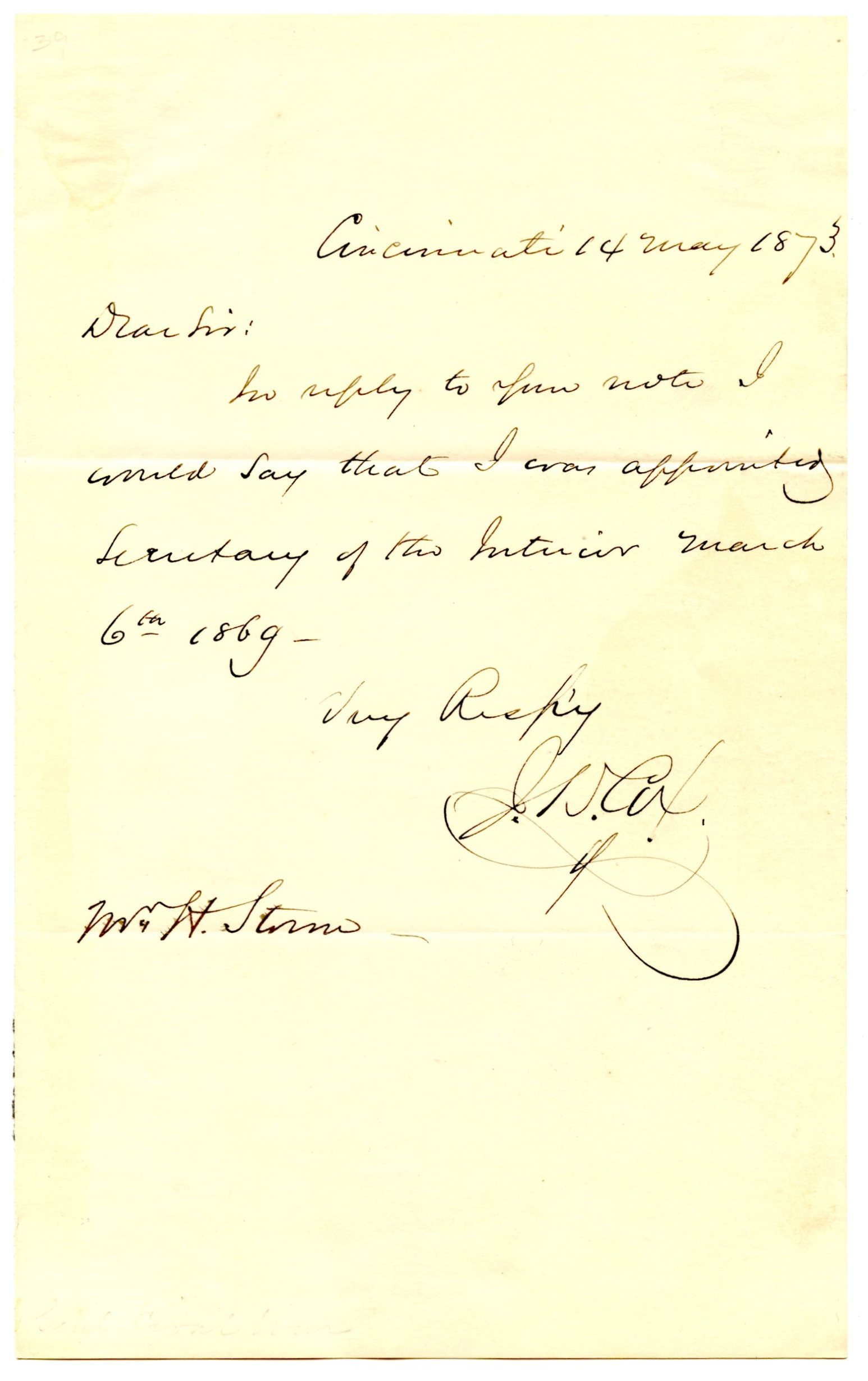New Items
These are our most recently listed items, in all categories.
 ANDREW, JOHN ALBION (1818-67) Governor of Massachusetts – 1861-66, instrumental in enlisting some of the first units of Colored Troops for the Union, including the 54th Massachusetts Infantry
ANDREW, JOHN ALBION (1818-67) Governor of Massachusetts – 1861-66, instrumental in enlisting some of the first units of Colored Troops for the Union, including the 54th Massachusetts Infantry
-100.png)
-100.png)
Civil War-Date Autograph Letter Signed – seeking a pass “to reclaim the remains of a dead Soldier.”
Autograph Letter Signed, on beautifully imprinted 6” x 7 ½” official stationery as Massachusetts governor. During the second year of war, Andrew seeks the assistance of Franklin E. Howe, an officer in the 36th Massachusetts Volunteer Infantry, in procuring a pass for a colleague in the regiment, to reclaim the remains of an unnamed dead soldier. Modern records indicate that Howe died of disease on May 5, 1864 in Westminster, Massachusetts.
“Boston, April 29, 1862, L[ieutenan]t Col[onel] Howe. My d[ea]r Col[onel], If you can help Mr. A.S. Tuttle to get a passage to Roanoke Island to reclaim the remains of a dead Soldier you will confer a favor. I am unaware about the regulations nom a sick passenger to N[orth] C[arolina] not in military service. Your serv[ant], John A. Andrew.”
Accompanied by the imprinted transmittal envelope, addressed to Howe. The letter is excellent overall, with light, even toning and two horizontal folds; the transmittal envelope bears heavier staining, with irregular tearing at the edges from opening.
 BANKS, NATHANIEL PRENTISS (1816-94) Union Major General – Massachusetts; Speaker of the U.S. House of Representatives – 1855-57; Governor of Massachusetts – 1858-61
BANKS, NATHANIEL PRENTISS (1816-94) Union Major General – Massachusetts; Speaker of the U.S. House of Representatives – 1855-57; Governor of Massachusetts – 1858-61
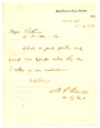
Civil War-Date Autograph Letter Signed
Autograph Letter Signed, 7” x 9”, on “Head-Quarters King’s Division” imprinted stationery, directing the encampment of his corps, shortly after the conclusion of the Shenandoah Valley campaign.
“Warrenton [Virginia], 25 – 6 [June, 1862]. P.M. Major Perkins, A[ide] D[e] C[amp], Etc. Select a good position and camp our Corps where they are. I return in an ambulance. Truly Yours, N.P. Banks, M[ajor] G[eneral] C[ommanding].”
Lightly and evenly toned, with a few light stains; minor bleeding of ink on several letters; two horizontal folds.
 BARNEY, ALBERT MILTON (1837-86) Union Brevet Brigadier General; Colonel of the 142nd New York Infantry
BARNEY, ALBERT MILTON (1837-86) Union Brevet Brigadier General; Colonel of the 142nd New York Infantry

Civil War-Date Document Signed – an imprinted 142nd New York Infantry Pass
Document Signed, 3 ¾” x 5”, West Point, Virginia, May 4, 1864, “A.M. Barney, L[ieutenan]t Col[onel] Commanding Regiment,” a desirable, partly printed pass; dated one day before the fighting began at the Battle of the Wilderness and countersigned by 142nd New York Lieutenant Joseph Hastings Hays, who was wounded at Drewry’s Bluff, Virginia the following month.
Lightly toned, with the expected folds; general wear and staining throughout.
 BAYARD, RICHARD HENRY (1796-1868) U.S. Senator – Delaware – 1836-39; First Mayor of Wilmington, Delaware; Son of U.S. Senator James A. Bayard of Delaware
BAYARD, RICHARD HENRY (1796-1868) U.S. Senator – Delaware – 1836-39; First Mayor of Wilmington, Delaware; Son of U.S. Senator James A. Bayard of Delaware

Franked Envelope, 3 ¾” x 8 ¼”, “Free, R.H. Bayard, U.S. Senate,” also addressed by Bayard, to “Herman Cope, Esq[uire], Bank U.S., Philadelphia,” with stamped free designation and a Washington, D.C. postmark, May 8, no year, and a red wax seal on the reverse.
Well-worn, with light toning; numerous edge chips and tears, all away from the signature and address.
 BROOKS, PHILLIPS (1835-93) American Clergyman; Author of “O Little Town of Bethlehem”
BROOKS, PHILLIPS (1835-93) American Clergyman; Author of “O Little Town of Bethlehem”
-100.png)
-100.png)
Autograph Letter Signed, two pages, front and reverse of the first leaf of an imprinted, folded 4 ¾” x 8” letter-sheet, expressing condolences to a friend upon the death of a brother.
“September 18, 1889. My dear Bob, I did not know when I wrote today what you were passing through. I had not heard about your brother’s death. May I tell you how I am sorry for everything which brings you pain with all my heart & will you believe how earnestly I ask for the highest help. God bless you & give you His best light. You will not want me to care to you on Monday as I proposed. If so, you will tell me so & I shall wholly understand. Be sure that I am always Your old friend, Phillips Brooks.”
Lightly and evenly toned, with a horizontal fold at the center; pencil notations in the upper right corner.
 BROOKS, PHILLIPS (1835-93) American Clergyman; Author of “O Little Town of Bethlehem”
BROOKS, PHILLIPS (1835-93) American Clergyman; Author of “O Little Town of Bethlehem”
-100.png)
-100.png)
Autograph Letter Signed, two pages on front and reverse of a single imprinted 3 ½” x 4 ¼” card, declining a request to attend a meeting.
“March 28, 1886. My dear Mr. Bertrand, I am sorry to say that all my Tuesday Evenings now are hopelessly engaged, so that I must not hope to be at your meeting, which I doubt not will be very interesting & successful. Yours most sincerely, Phillips Brooks.”
Lightly and evenly toned, with several minor stains and light creases.
 BROWN, JOHN, JR. (1821-95) Eldest child of noted Abolitionist John Brown; Civil War Union Captain – 7th Kansas Infantry, Jennison’s Jayhawkers
BROWN, JOHN, JR. (1821-95) Eldest child of noted Abolitionist John Brown; Civil War Union Captain – 7th Kansas Infantry, Jennison’s Jayhawkers
-100.png)
-100.png)
Civil War-Date Autograph Letter Signed - from Leavenworth, Kansas
Autograph Letter Signed, 5 ¼” x 8 ¼”. From Leavenworth, Kansas, the vicinity of his father’s actions at the Pottawatomie Massacre and the Battles of Osawatomie and Black Jack in 1856 “Bleeding Kansas,” Brown conveys details of his return home to his wife in Ohio. Accompanied by the transmittal envelope, imprinted “R. Stevenson, Photographic ARTIST, 40 Delaware Street, Leavenworth, Kansas”; addressed by Brown, to “Mrs. Wealthy C. Brown, Jefferson, Ashtabula Co[unty], Ohio, Box 125,” with a three-cent U.S. postage stamp and a June 6, 1862, Leavenworth City, Kansas Territory postmark at the upper right corner.
“Leavenworth City Kansas, Thursday, June 5 1862.
My Loved Wife,
I have this moment got yours of the 28th. All in a hurry this morning as a Boat for St. Louis has just come and is off in a few minutes.
It will take me about five days to Chicago including one Sunday – say two days there then, one perhaps at Cleveland when I will be home as fast as I can. Every thing is waiting and I must say good bye.
Your own, John.”
Lightly and evenly toned, with a few minor stains and smearing of ink to several characters; chipping at the upper right corner and at the edge of the lower of two horizontal folds detracts very little. The envelope has the expected wear at the edge and the right edge has been torn somewhat irregularly in opening.
 BROWNING, ORVILLE HICKMAN (1806-81) U.S. Interior Secretary – 1866-69; U.S. Senator – Illinois – 1861-63; Lifelong friend of Abraham Lincoln
BROWNING, ORVILLE HICKMAN (1806-81) U.S. Interior Secretary – 1866-69; U.S. Senator – Illinois – 1861-63; Lifelong friend of Abraham Lincoln

Signature, with date and place of residence, “O.H. Browning, Quincy, Illinois, Aug[us]t 10, 1874,” on a 3” x 7 ¾” slip of lined paper; affixed to heavier backing.
Excellent.
 BROWNING, ORVILLE HICKMAN (1806-81) U.S. Interior Secretary – 1866-69; U.S. Senator – Illinois – 1861-63; Lifelong friend of Abraham Lincoln
BROWNING, ORVILLE HICKMAN (1806-81) U.S. Interior Secretary – 1866-69; U.S. Senator – Illinois – 1861-63; Lifelong friend of Abraham Lincoln
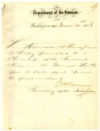
Letter Signed, on imprinted stationery as U.S. Interior Secretary, promoting a clerk in the General Land Office.
“Washington, D.C., March 24th 1868. L. Harreson of Pennsylvania, is hereby promoted to a Clerkship of the Second Class in the General Land Office to take effect from the first instant. O.H. Browning, Secretary of the Interior.”
Lightly toned, with a few stains and two horizontal folds; trimmed slightly at the left edge; old mounting remnants on the reverse.
 BROWNING, ORVILLE HICKMAN (1806-81) U.S. Interior Secretary – 1866-69; U.S. Senator – Illinois – 1861-63; Lifelong friend of Abraham Lincoln
BROWNING, ORVILLE HICKMAN (1806-81) U.S. Interior Secretary – 1866-69; U.S. Senator – Illinois – 1861-63; Lifelong friend of Abraham Lincoln

Signature, with sentiment and date, “very Respectfully yours, O.H. Browning, Feb[ruar]y 1, 1867,” on a 2 ¼” x 4 ¾” slip of lined paper; penned as U.S. Interior Secretary.
Lightly and evenly toned, with minor show-through of old mounting remnants on the reverse.
 BRUCE, BLANCHE KELSO (1841-98) U.S. Senator – Mississippi – 1875-81; First elected African-American Senator to serve a full term; Register of the U.S. Treasury – 1881-85 & 1897-98
BRUCE, BLANCHE KELSO (1841-98) U.S. Senator – Mississippi – 1875-81; First elected African-American Senator to serve a full term; Register of the U.S. Treasury – 1881-85 & 1897-98

Signature, as U.S. Senator, “B.K. Bruce, Miss[issippi],” on a 1 ½” x 4 ½” portion of an album page.
Excellent.
 BURNSIDE, AMBROSE EVERETT (1824-81) Union Major General; Commanded the Union Army of the Potomac at the Battle of Fredericksburg; Governor of Rhode Island – 1866-69; U.S. Senator – Rhode Island – 1875-81
BURNSIDE, AMBROSE EVERETT (1824-81) Union Major General; Commanded the Union Army of the Potomac at the Battle of Fredericksburg; Governor of Rhode Island – 1866-69; U.S. Senator – Rhode Island – 1875-81

Document Signed, 9 ½” x 11”, Boston, Massachusetts, April 17, 1869, “A.E. Burnside,” as company president, a partly printed $500 “First Mortgage Bonds” certificate for the Narrangansett Steamship Company. Countersigned by four company officials. A five-cent revenue stamp is affixed at upper right, with an embossed seal at lower right.
Lightly toned, with the usual folds; a few tears and cuts at the lower edge; show-through along the lower edge from glue staining on the reverse.
 CALHOUN, JAMES MONTGOMERY (1811-75) Mayor of Atlanta, Georgia – 1862-65; Recipient of the famous “War is Cruelty” letter from Union General William Tecumseh Sherman upon the surrender of the city, September 1864
CALHOUN, JAMES MONTGOMERY (1811-75) Mayor of Atlanta, Georgia – 1862-65; Recipient of the famous “War is Cruelty” letter from Union General William Tecumseh Sherman upon the surrender of the city, September 1864

Check signed by the Confederate Mayor of Atlanta, Georgia, just two months before the fall of the city…
Civil War-Date Document Signed, 3 ¼” x 7 ½”, “City Clerk’s Office, Atlanta, Georgia, July 1, 1864…J.M. Calhoun,” a partly printed check drawn on the city account, payable to one “John Haslett” in the amount of thirty dollars, compensation for expenses described only as “Streets”; dated just two months before the city was surrendered to Union General William Tecumseh Sherman on September 2, 1864 and countersigned by another city official.
Lightly and evenly toned, with a few light creases and minor staining, wear, and soiling; text and signatures are unaffected by a two-inch horizontal tear, with no loss of paper, at the mid-right edge.
 CARTER, JAMES EARL, JR. “JIMMY” (1924-2024) Thirty-Ninth U.S. President – 1977-81; Governor of Georgia – 1971-75
CARTER, JAMES EARL, JR. “JIMMY” (1924-2024) Thirty-Ninth U.S. President – 1977-81; Governor of Georgia – 1971-75

Autograph Note Signed, 2 ½” x 4 ¼”, an undated, cordial reply to a letter.
“To Mark: Thank you for the nice letter, and best wishes to you and your family. Jimmy Carter.”
Excellent.
 CHESNUT, JAMES, JR. (1815-85) Confederate Brigadier General; Served as aide to Confederate General P.G.T. Beauregard & President Jefferson Davis; U.S. Senator – South Carolina – 1858-60; Husband of Confederate diarist Mary Boykin Chesnut
CHESNUT, JAMES, JR. (1815-85) Confederate Brigadier General; Served as aide to Confederate General P.G.T. Beauregard & President Jefferson Davis; U.S. Senator – South Carolina – 1858-60; Husband of Confederate diarist Mary Boykin Chesnut

Franked Envelope, 2 ¾” x 5 ¼”, “James Chesnut, U.S.S. fr…,” as U.S. Senator from South Carolina, also addressed by Chesnut to “Hon[orable] J.L. Manning, Willard’s Hotel, Washington.” Dated 1860 vertically at the left edge, quite possibly by the recipient, John Laurence Manning, former South Carolina governor, 1852-54, who later served as a colonel in the Confederate Army.
Torn irregularly in opening at the upper right corner, affecting the last few characters of Chesnut’s frank.
 COLLINS, THOMAS LeROY (1909-91) Progressive Governor of Florida – 1955-61
COLLINS, THOMAS LeROY (1909-91) Progressive Governor of Florida – 1955-61

Signed Index Card, 3” x 5”, dated as governor on the blank reverse, “LeRoy Collins, Governor of Florida, 1959.”
Excellent, with light, even toning.
 COOLIDGE, CALVIN (1872-1933) Thirtieth U.S. President - 1923-29; U.S. Vice President – 1921-23; Governor of Massachusetts – 1919-21
COOLIDGE, CALVIN (1872-1933) Thirtieth U.S. President - 1923-29; U.S. Vice President – 1921-23; Governor of Massachusetts – 1919-21
Document Signed, 3” x 8 ½”, Northampton, Massachusetts, March 29, 1929, “Calvin Coolidge,” a partly printed check, also accomplished by Coolidge less than a month after leaving office as U.S. President, drawn on The Hampshire County Trust Co. and made payable to one Mary Ahearn for thirty dollars.
The check is in very good condition, with minor smudging of ink to several letters, a small tear in the upper margin, and a few light vertical folds. The hole-punch cancellation at center affects an insignificant part of the beginning of Coolidge’s signature.
 COOLIDGE, CALVIN (1872-1933) Thirtieth U.S. President - 1923-29; U.S. Vice President – 1921-23; Governor of Massachusetts – 1919-21
COOLIDGE, CALVIN (1872-1933) Thirtieth U.S. President - 1923-29; U.S. Vice President – 1921-23; Governor of Massachusetts – 1919-21
Vice President Coolidge Thanks a Journalist from The Nation
Typed Letter Signed, 7” x 9”. Writing on imprinted official stationery, U.S. Vice President Coolidge thanks Marian Tyler, a journalist with The Nation, a liberal weekly magazine first published in 1865, for her letter.
“THE VICE-PRESIDENT’S CHAMBER, WASHINGTON, February 2, 1922. Miss Marian Tyler, The Nation, 20 Vesey Street, New York, N.Y. My dear Miss Tyler: Please accept my thanks for your letter and enclosure. It is always interesting to see the discussion that goes on in the public press. Very sincerely yours, Calvin Coolidge.”
The letter is lightly toned and soiled, with a horizontal fold at the center.
 COOLIDGE, CALVIN (1872-1933) Thirtieth U.S. President - 1923-29; U.S. Vice President – 1921-23; Governor of Massachusetts – 1919-21
COOLIDGE, CALVIN (1872-1933) Thirtieth U.S. President - 1923-29; U.S. Vice President – 1921-23; Governor of Massachusetts – 1919-21
The Vice President-Elect Thanks a Supporter – Just Two Days after the 1920 Election
Typed Letter Signed, 7 ¼” x 9 ½”, on imprinted stationery as Massachusetts Governor. During the second year of his short tenure as governor - just two days after election to U.S. vice president on the Warren G. Harding ticket - Coolidge thanks “Mr. Ernest M. Hortmann, Boston, Mass.,” for a letter.
“EXECUTIVE DEPARTMENT, STATE HOUSE, BOSTON. 4th November, 1920…My dear Mr. Hortmann: It was exceedingly thoughtful of you to send me such a gracious message. I want to thank you for your kind wishes which I assure you I reciprocate. Cordially yours, Calvin Coolidge.”
The letter is lightly and evenly toned, with two horizontal folds and a pinhole along the bottom edge.
 COX, JACOB DOLSON (1828-1900) Union Major General; U.S. Interior Secretary – 1869-70; Governor of Ohio – 1866-68; U.S. Representative – Ohio – 1877-79
COX, JACOB DOLSON (1828-1900) Union Major General; U.S. Interior Secretary – 1869-70; Governor of Ohio – 1866-68; U.S. Representative – Ohio – 1877-79
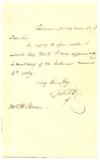
Autograph Letter Signed, 5” x 8”, confirming the date of his appointment as Interior Secretary in the administration of President Ulysses S. Grant.
“Cincinnati [Ohio], 14 May 1873. Dear Sir: In reply to your note I would say that I was appointed Secretary of the Interior March 6th 1869. Very Resp[ectfull]y, J.D. Cox.”
Lightly and evenly toned, with two horizontal folds; old hinge and mounting remnants on reverse of the integral leaf.


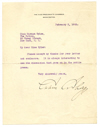
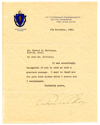
-1852.png)
-1847.png)
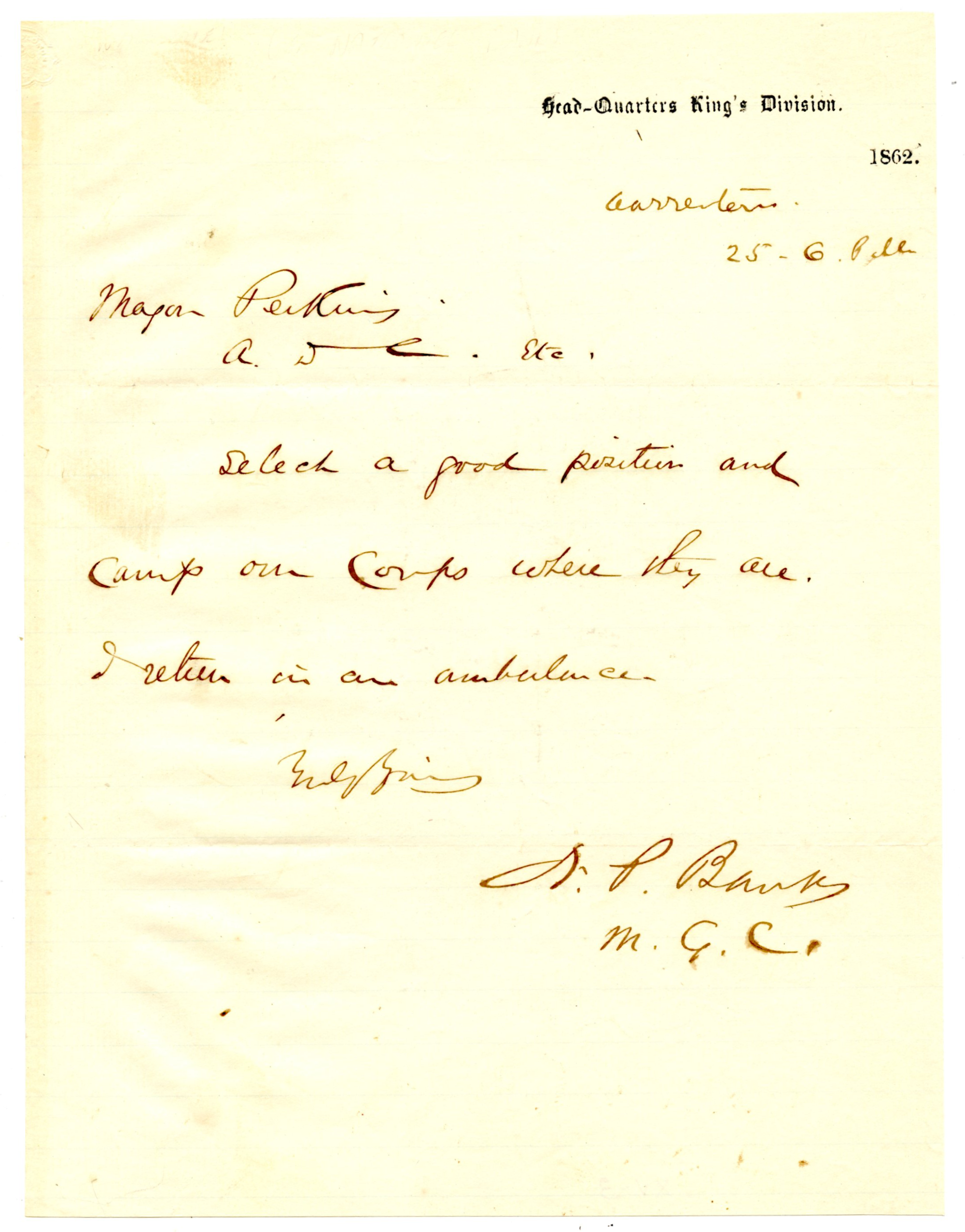
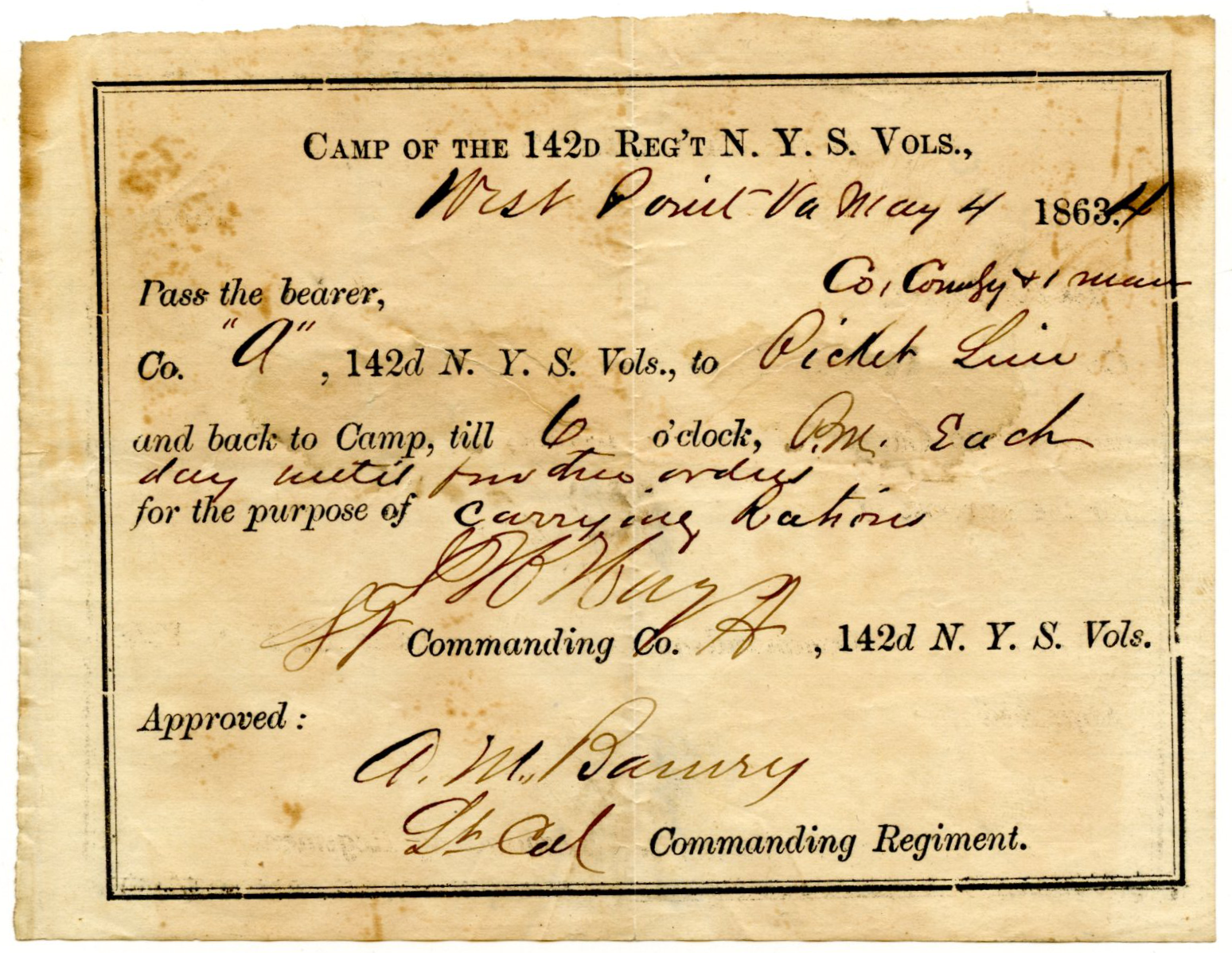
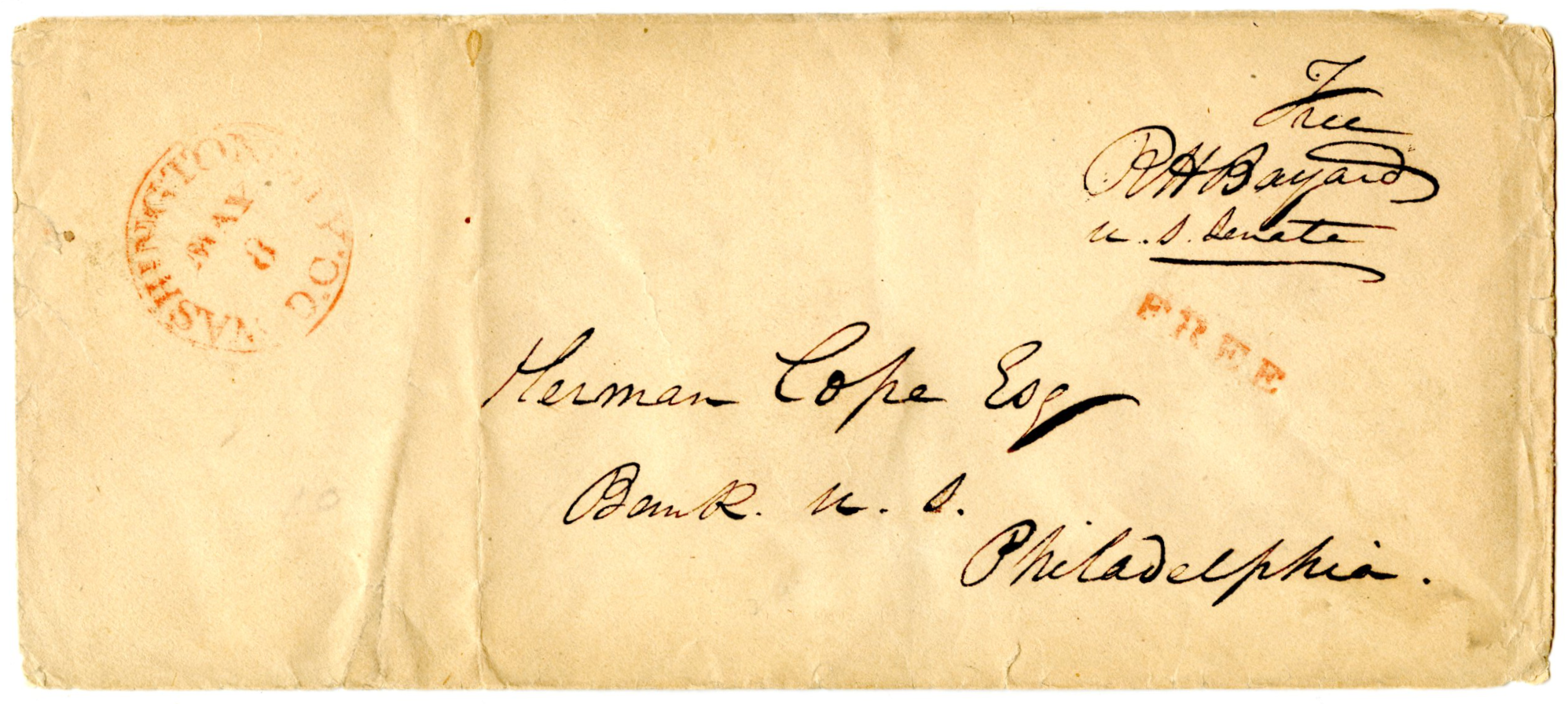
-1495.png)
-1506.png)
-1340.png)
-1336.png)
-1696.png)
-1682.png)
